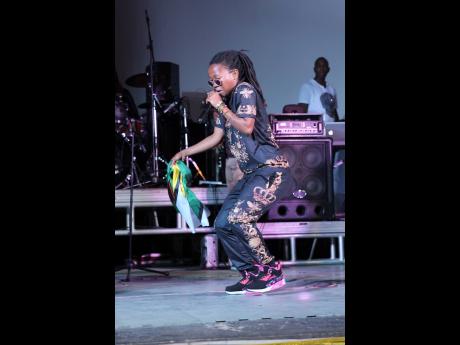South African artistes feed off Ja’s musical legacy
“Reggae is experiencing a revival in South Africa,” says Zimbabwe-born Menelik Nesta ‘Don Dada’ Gibbons, an artiste whose popularity has seen him being nominated as Zim Hip Hop’s Best in the Diaspora and branded the official Mandela Artiste of 2017.
However, despite his hip-hop accolades, he had a change of heart, musically, and is now doing reggae music.
The hip hop-turned-reggae artiste explains that the music industry in his homeland has been trying to make a way for artistes of the various genres of the world, but he says the interest in reggae has declined since the 2007 passing of South Africa’s best-selling reggae act, Lucky Dube.
“It kind of fell to the wayside. He [Lucky Dube] worked hard to keep reggae in the spotlight and also invested time and money in the work, but artistes are struggling to find money to pay reggae bands to play, or create the music, or even for live shows,” Don Dada told The Gleaner.
The entertainer feels somewhat pressured to carry on reggae’s good name, having the middle name Nesta, which was given to him by his mother Layla Gibbons, a fan of the genre’s icon, who is also celebrated as a Pan-Africanist, Robert Nesta Marley.
“When I was younger, my mother shared with me that she met Bob Marley on the streets of Harare in 1980 (the same year the reggae icon performed for Zimbabwe’s Independence Day celebration) and had the chance to have a conversation with him. Though brief, it was impactful. I was born seven years later and named after two powerful men: my first name, after Emperor Menelik and Nesta from the King of Reggae, Bob Marley,” Don Dada shared in the most modest tone.
Zimbabwe’s local newspapers have compared the artiste to dancehall legend, Super Cat, who has a 1990’s hit titled Don Dada. His stage name, he says, pays homage to both Marley, who he sees as the ‘don’ of reggae, and Super Cat, the original Don Dadda. As destiny would have it, Don Dada’s first visit to Jamaica was to perform at the live tribute concert for Marley’s 74th birthday, held at the Bob Marley Museum last February.
The 32-year-old artiste has been making music professionally from age 13. “From Zim Hip Hop, I forward into reggae, which I would say is quite refreshing compared to hip hop, because it is less egotistical and more about community.”
The level of acceptance for reggae, he adds, “Is completely different back home. Right now [it] is more about trying to develop our industry, and Jamaica acts as a learning curve. It’s here for artistes like me to explore and observe, and then take it home and try to adapt it to our climate.”
That difference he speaks of is the love of bands and live music. He says it is more common to see a main artiste alongside a selector playing the rhythm and harmonies, rather than an accompanying musician. However, for studio sessions, their productions are improved by adding live elements.
Musical nourishment
“For now, it’s our version of reggae, African reggae, where we try to maintain our African elements and show our roots in the music. But at the same time, because reggae is the genre, we are trying to make it as ‘reggae’ as possible,” he said. “Reggae is spiritual, so by adding your spirit, your soul, into the music makes it reggae, and if we’re being technical with things learnt in music school theory, reggae has a specific bass and drum line. But we still use traditional drums as the instruments to create it, so it still sounds South African. Reggae has African roots, so it gels together nicely.”
For its 25th year, the South African Music Awards introduced reggae as an individual category, but, according to Don Dada’s “second”, Somila Mejane, “The people still are not grasping the concept of reggae and its place in the South African culture.”
Mejane, who is more popular by her stage name ‘Seed Under’ on the South African music scene, added, “After Bob Marley, we only know Lucky Dube … from there on its all blurred lines. I think it is up to the younger generation, like me and Don Dada, who are presently learning from true legends and practitioners of reggae to sharpen those lines and say, this is what you call reggae.”
She added, “I describe my version of reggae, m-(clicks tongue)-too or mqtoo; it is like a beef jerky snack, when you have it, it’s enjoyable and it is nourishment for the taste buds and the soul. That is the best interpretation.”
Prior to venturing into music, Seed Under, who hails from Eastern Cape, was immersed in theatre arts, drama and dance. Her lessons in dance started in her community, where learning traditional dance is compulsory, but she branched out into hip hop and modern contemporary and was introduced to the various musical genres. The two entertainers met at a car park concert in the administrative capital of Pretoria and clicked from there.
“Now, if you see him, you see me,” she said. “It is a blessing to be in Jamaica for the second time in the same year; and it feels like the first time, because I am discovering more of the unique culture and reggae legacy.”
Both artistes agree that their best songs are collaborations with each other, with the most recent being a project with the Reggae Powerhouse Band, titled Jah Is Good. The song is currently distributed by Tuff Gong International and is available on all digital platforms.


